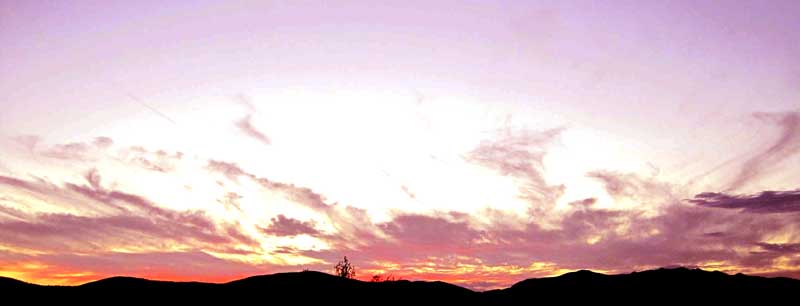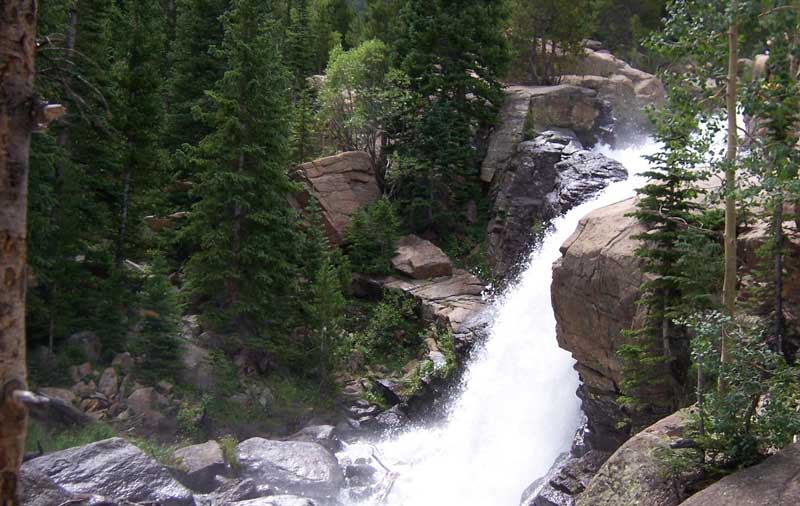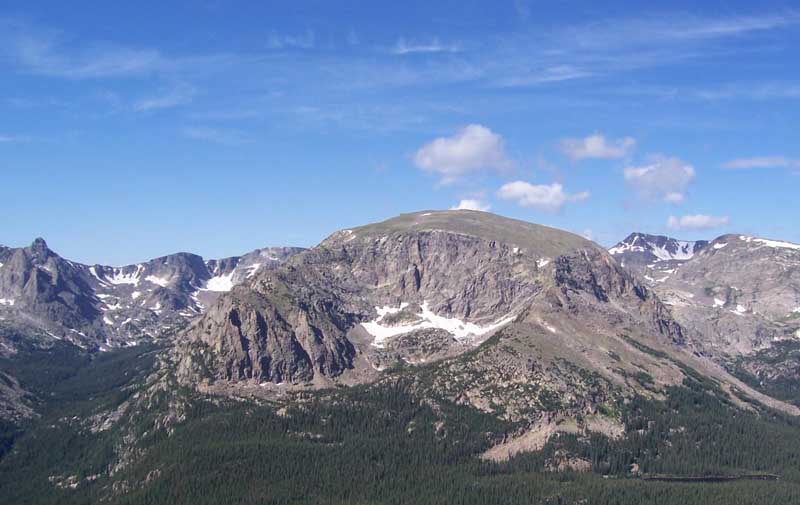In the past I posted a couple of articles: Solo Backpacking and Solo Backpacking: Crazy and Dangerous? For some reason, I get the greatest criticism about hiking solo from other backpackers. This might infer that backpackers have greater knowledge about the dangers of solo walking than non-backpackers, or perhaps I come across as elitist. I couldn’t disagree more. In my opinion, hiking alone is safer than hiking in a group.
If you are a backpacker, then the chances are pretty good that you have read the writings of John Muir, Colin Fletcher, Edward Abbey, Harvey Butchart, Chris Townsend, Andrew Skukra and a slew others. What do these writers have in common besides a love of wild places and hiking expertise? The answer is they are all (or were) solo hikers.
By solo hiker, I mean someone who hikes alone and hikes places where they probably won’t run into other people for days or weeks at a time. This doesn’t mean they never hike with others, but most of them enjoy hiking alone.
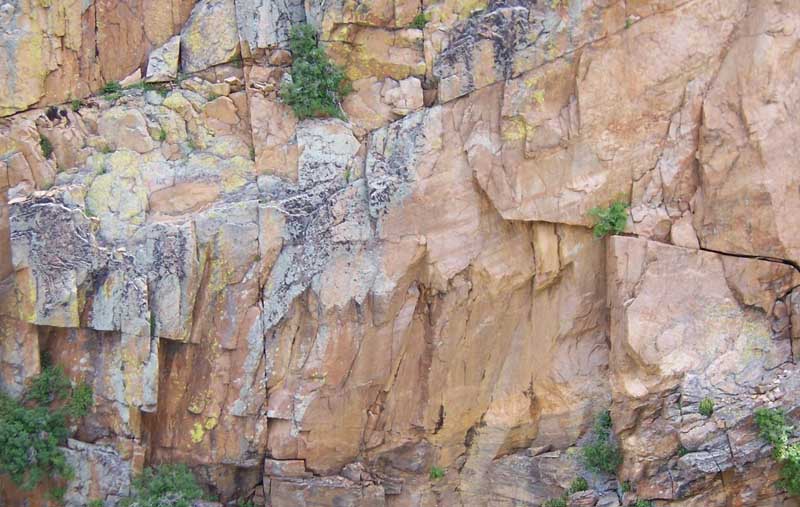 Being a solo hiker does not mean one is anti-social or deranged. It means they want to immerse themselves in nature; and one cannot be immersed when there are other people around. We are social animals. Being social means that a group will separate themselves from nature to some degree — their focus will be social — not on nature. When one hikes alone, the hiker must be more careful because even a minor injury can be catastrophic. The skilled solo hiker pays more attention to all the small details of his surroundings; he must do so to ensure his safety. This increased focus of the solo hiker on the immediate environment enhances the wilderness experience. The solo hiker gets more out of the wild, because he must be more in tune with it. Tuning into nature makes the solo hiker safer, which means the solo hiker is less likely to get injured or lost. Of course we must assume the solo hiker has the skill and experience to stay out of trouble.
Being a solo hiker does not mean one is anti-social or deranged. It means they want to immerse themselves in nature; and one cannot be immersed when there are other people around. We are social animals. Being social means that a group will separate themselves from nature to some degree — their focus will be social — not on nature. When one hikes alone, the hiker must be more careful because even a minor injury can be catastrophic. The skilled solo hiker pays more attention to all the small details of his surroundings; he must do so to ensure his safety. This increased focus of the solo hiker on the immediate environment enhances the wilderness experience. The solo hiker gets more out of the wild, because he must be more in tune with it. Tuning into nature makes the solo hiker safer, which means the solo hiker is less likely to get injured or lost. Of course we must assume the solo hiker has the skill and experience to stay out of trouble.
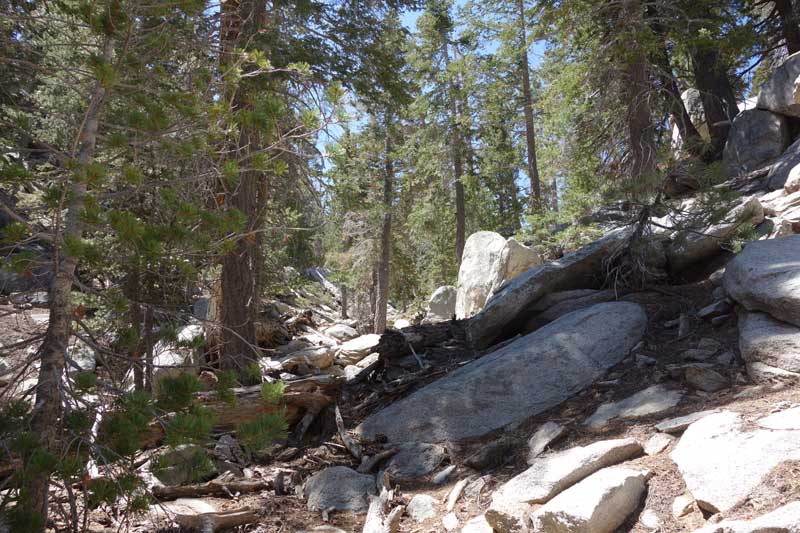 This lack of individual focus when hiking in a group has happened to me twice in the past few years, both times when I was leading a hike. And both times it was a group of just two people. Both times I was talking to the other person instead of my usual focus on my immediate surroundings. And both times it resulted in me taking a wrong turn and getting off track. Neither time was I lost — we just had to walk extra miles and extra time to get back on track.
This lack of individual focus when hiking in a group has happened to me twice in the past few years, both times when I was leading a hike. And both times it was a group of just two people. Both times I was talking to the other person instead of my usual focus on my immediate surroundings. And both times it resulted in me taking a wrong turn and getting off track. Neither time was I lost — we just had to walk extra miles and extra time to get back on track.
I am not saying that solo backpacking is best all of the time. But for me, it is best most of the time. Now if my wife was interested in backpacking, then I would be hiking with her most of the time, and not solo. If a hiker decide to hike with a group, he must choose his hiking partners carefully.
Groupthink
Some groups sink into a phenomenon known as Groupthink. This means to make sure everyone in the group gets along; the group avoids any disagreement or confrontations. Cohesiveness of the group becomes more important than examining options because harmony is most important. Often times the group is lulled into a false sense of security because of the old adage “several minds are better than one.” I see this a lot, where groups get lost because no one is willing to jeopardize the group dynamics by presenting a dissenting opinion. Loyalty to the group is more important. The group loses objectivity and feels secure because a group must be superior than an individual.
Collaboration
I see this all the time in non-backpacking situations, and the concepts apply to hiking in groups. A group is going to collaborate and come up with the average, or what is best for the average of the group. Groups never come up with the best solution. The problem with a collaborative hiking group is that no one hikes at the same pace, not everyone wants to rest at the same exact time, some want to stop and explore, others want to hike full steam ahead and not vary from the itinerary, some want to stay up late, and others want to sleep late. It’s a mixed bag of wants and needs, and usually the lowest common denominator becomes the operational plan. Everything becomes a compromise. And compromises can lead to mistakes and poor judgment.
Benefits of Solo Backpacking
- You can hike when it is convenient for you. You do not have to fit your schedule to someone else’s.
- You can do whatever you want. Go where you want, hike at the speed you want, stop when you want. You do not have to worry about someone else and what they want to do.
- Your mind is your own. You can think about anything you want without being interrupted by conversation.
- You don’t have to worry about anyone but yourself.
